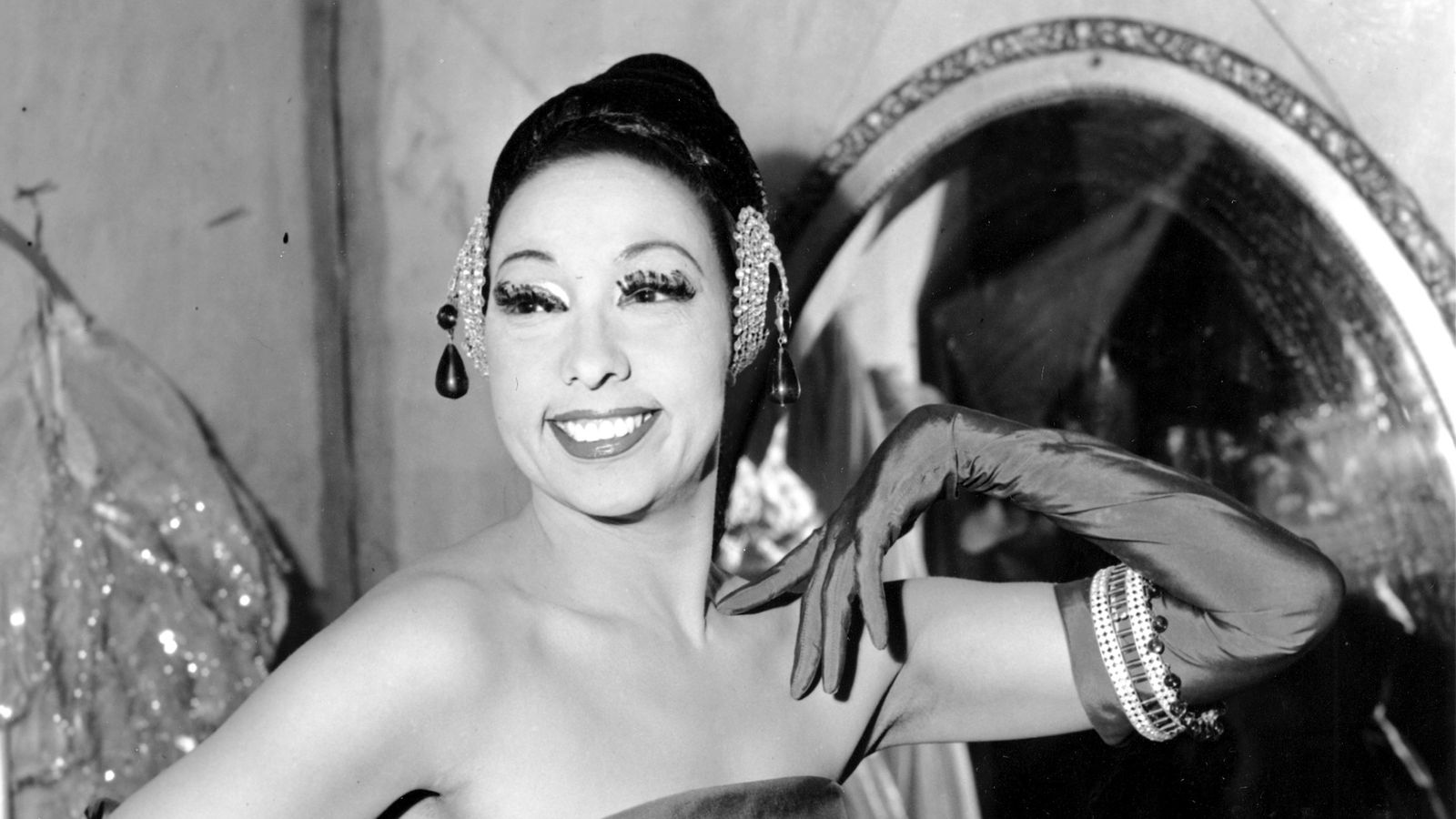Josephine Baker will be the first black woman to be honoured by the French government with a place in the Pantheon.
President Emmanuel Macron decided she would be interred in the building in Paris – a monument to France’s national heroes and where some of its most revered historical figures are buried – in response to a major petition.
The body of the Missouri-born cabaret dancer, French World War II spy and civil rights activist will stay in Monaco at the request of her family.
But a coffin carrying soils from the US, France and Monaco – places where Baker made her mark – will be deposited inside the Pantheon monument on Tuesday.
In addition to honouring an exceptional figure in French history, the move is meant to send a message against racism and celebrate US-French connections.
But critics in France say that by focusing on an American-born figure, France is continuing a long tradition of decrying racism abroad while failing to face up to it at home.
Laurent Kupferman, the author of the petition said: “She embodies, before anything, women’s freedom.”
Migrant crossings: UK must make itself ‘less economically attractive’ to those making journey, French interior minister says
Channel migrants: Dutch and UK govts agree migrants need to be returned to first country ahead of meeting UK excluded from
Channel crossings: UK-France relations ‘strong’ despite row, minister says
Baker was born in 1906, in St. Louis, Missouri and at 19, having already divorced twice, she started a performing career and moved to France following a job opportunity.
“She arrives in France in 1925, she’s an emancipated woman, taking her life in her hands, in a country of which she doesn’t even speak the language,” Mr Kupferman said.
She met immediate success on the Theatre des Champs-Elysees stage, where she appeared topless and wearing a famed banana belt.
Her show, embodying the colonial time’s racist stereotypes about African women, caused both condemnation and celebration.
“She was that kind of fantasy: not the black body of an American woman but of an African woman,” Theatre des Champs-Elysees spokesperson Ophélie Lachaux said.
“And that’s why they asked Josephine to dance something ‘tribal,’ ‘savage,’ ‘African’-like.”
Baker’s career took a more serious turn after that, as she learned to speak five languages and toured internationally.
She became a French citizen after her marriage in 1937 to industrialist Jean Lion, a Jewish man who later suffered from anti-Semitic laws of the collaborationist Vichy regime.
In September 1939, as France and Britain declared war against Nazi Germany, Baker got in touch with the head of the French counterintelligence services.
She started working as an informant, traveling, getting close to officials and sharing information hidden on her music sheets, according to French military archives.
After France’s defeat in June 1940, she refused to play for the Nazis who occupied Paris and moved to southwestern France.
She continued to work for the French Resistance, using her artistic performances as a cover for her spying activities.
After the defeat of the Nazis, she went to Germany to sing for former prisoners and deportees freed from the camps.
“Baker’s involvement in politics was individual and atypical,” said Benetta Jules-Rosette, a leading scholar on Baker’s life and a sociology professor at the University of California, San Diego.
After the war, Baker got involved in anti-racist politics. She fought against American segregation during a 1951 performance tour of the US, causing her to be targeted by the FBI, labelled a communist and banned from her homeland for a decade.
Back in France, she adopted 12 children from all over the world, creating a “rainbow tribe” to embody her ideal of “universal fraternity”.
“My mother saw the success of the rainbow tribe, because when we caused trouble as kids, she would never know who had done it because we never ratted on each other, risking collective punishment,” one of Baker’s sons, Brian Bouillon Baker, said.
“I heard her say to some friends ‘I’m mad to never know who causes trouble, but I’m happy and proud that my kids stand united.'”
While Baker is widely appreciated in France, some critics of Macron question why he chose an American-born figure as the first Black woman in the Pantheon, instead of someone who rose up against racism and colonialism in France itself.
The Pantheon, built at the end of the 18th century, honours 72 men and five women, including Baker. She joins two other Black figures in the mausoleum: the first black colonial governor in French Africa, Felix Eboué, and famed writer Alexandre Dumas, author of The Three Musketeers, The Count of Monte Cristo, and The Man in the Iron Mask.
“These are people who have committed themselves, especially to others,” Pantheon administrator David Medec said.
“It is not only excellence in a field of competence, it is really the question of commitment, commitment to others.”






















